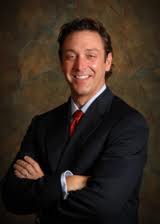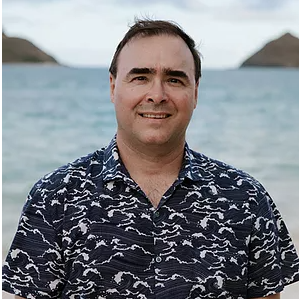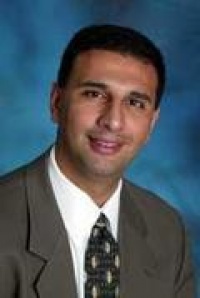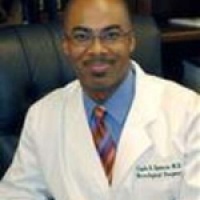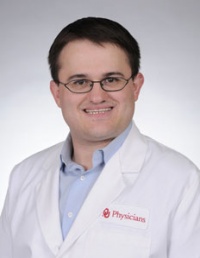Dr. Shon William Cook MD
Neurosurgeon
11317 S. Western Ave., Bldg 300 Oklahoma City OK, 73170About
Dr. Shon Cook practices Neurological Surgery in Oklahoma City, OK. As a Neurological Surgeon, Dr. Cook prevents, diagnoses, evaluates, and treats disorders of the autonomic, peripheral, and central nervous systems. Neurological Surgeons are trained to treat such disorders as spinal canal stenosis, herniated discs, tumors, fractures, and spinal deformities, among many others.
Education and Training
Brown University Sc.B. 1994
University of California 2004
University of Cincinnati College of Medicine 1998
Board Certification
American Board of Neurological Surgery
Provider Details
Dr. Shon William Cook MD's Expert Contributions
What does a brain aneurysm headache feel like?
Brain aneurysms do not cause headaches. Most people will never know they have one. Some brain aneurysms in some locations can rupture and bleed into the subarachnoid space. A subarachnoid hemorrhage typically causes a sudden onset "worst headache of your life". Often there will be severe light sensitivity, nausea or vomiting, and a stiff neck. It is an emergency, so you need to go to the hospital right away. READ MORE
How long do you stay in the hospital after a brain aneurysm?
Almost all of my patients go home from the ICU the morning after surgery for a brain aneurysm. They go home with a full head of hair and no specific activity restrictions. READ MORE
Back pain
It could be caused from any number of things. It could be from a disc, the facet joints, any of the supporting ligaments, the muscles surrounding the spine, or the sacroiliac joints. A pain management specialist can do a number of procedures that will determine what is causing the pain, and most often can alleviate the pain without surgery. Physical therapy and core strengthening along with weight loss if necessary also alleviates most back pain. If surgery becomes your only option, and a focal pain source is identified by imaging or by the interventional pain management specialist, then you will be referred to a surgeon to discuss the pros and cons of all of your surgical options. READ MORE
Should I see a neurosurgeon for neck pain?
No. Not just for neck pain. Neck pain is most often alleviated by a physical therapist, chiropractor, or interventional pain management. Surgery is hardly ever necessary for neck pain. If you are losing strength in your arms, then your doctor should order an MRI to determine whether you need to see a neurologist or a neurosurgeon. But to answer your question, no. A neurosurgeon would be the last specialist you would see for neck pain, after you have exhausted all of your nonsurgical options first, and only if an interventional pain management specialist has identifies a focal spot that is causing the pain that can be treated with surgery. READ MORE
Is back nerve repair surgery painful?
What do you mean by "back nerve repair surgery"? All surgery is painful. You are being cut open. Without knowing what surgery you are asking about, I can't tell you what to expect after surgery. READ MORE
How do neurologists treat nerve pain in the neck?
First, I'm not sure what you mean by "nerve pain in your neck". Do you mean occipital neuralgia? That is treated by neurologists and pain management specialists with medications and injections and ablations, and some neurosurgeons like me do a surgery that can alleviate that. If you just have pain in your neck, neurologists don't treat that. Neck pain is treated by pain management specialists and physical therapists, not neurologists. If you have pain down your arm from nerve compression in your neck, that would also be treated by a pain management specialist, not a neurologist. If that nerve compression causing the pain is also causing weakness, then a neurosurgeon like me may need to get involved for surgery. Neurologists do treat nerve pain from processes like peripheral neuropathy and trigeminal neuralgia, but they don't get involved with neck pain or cervical radiculopathy. That would be pain management specialists or in rare instances, neurosurgery. READ MORE
Should I see a neurologist for back pain?
No. Neurologists don’t treat back pain. You would start with your primary care doctor. Back pain is the 4th most common complaint to a primary care doctor. Most primary care docs are well trained to treat back pain, or to refer you to the appropriate specialist. If you don’t have any symptoms except back pain, that would be treated with physical therapy, core strengthening, weight loss, chiropractics, stopping smoking, interventional pain management, and in very rare and very specific conditions, surgery. READ MORE
How long do damaged nerves in neck take to heal?
I can tell you from personal experience when my C6 nerve root was crushed I got some movement back in about 4 months, and the strength was about 95% back to normal after a year. And that’s as good as it got. The farther away the paralyzed muscles are from your neck, the longer it will take. So C7 and C8 will take longer than that, with a higher chance of not getting everything back. READ MORE
Pituitary Stalk Microadenoma
There is no need to do anything unless it grows on each subsequent scan, or you start to lose your peripheral vision. Then you should have it removed. Surgery is pretty easy. It’s done through the nose with no incision and most people go home the morning after surgery. READ MORE
Sciatica after microdiscetomy
Let your surgeon know. This question is impossible to answer without seeing your imaging before and after surgery, and knowing what was done during surgery. READ MORE
Can you live a normal life with a brain aneurysm?
Yes. You can live a normal life with a brain aneurysm… until it ruptures. Depending on the size and shape of your aneurysm, the risk of rupturing may be incredibly small, or it may be significant. If it ruptures, there is a very high chance of permanent neurologic deficits or death. The goal is to treat it before it ruptures. You need to discuss your options with an interventional neuroradiologist or a neurosurgeon. Repeating your imaging every year may be your best option, but without knowing anything about the size, shape, and location of your aneurysm, I can’t say for sure. If you elect to watch it instead of treating it, don’t smoke, and keep your blood pressure controlled. Of course you should do those whether you have an aneurysm or not. READ MORE
Advice
I can not tell what levels those axial views are of, and there are no foraminal oblique sequences, but the right exiting nerve root does appear to be compressed on those images. If you have progressively worsening weakness of the muscles supplied by that nerve, the nerve should be decompressed. If you only have numbness and pain, then physical therapy and interventional pain management are the right specialists to see first before a surgeon. An EMG would also tell you if you have any motor changes in that nerve that may prompt surgery before first exhausting all of your nonsurgical options. READ MORE
Do neurologists handle epilepsy?
Yes. Neurologists treat epilepsy. If medicine can not satisfactorily control the seizures, and the neurologist thinks you may have a type of epilepsy that surgery can alleviate, then the neurologist may refer you to a neurosurgeon. READ MORE
Cervical spine analysis?
That is an impossible question to answer. It may help, or it may not. If it does not help, then you know surgery is your only option left. If you have focal weakness or myelopathy, not just pain and tingling, then that should be addressed surgically. Steroids alleviate pain. READ MORE
What is the success rate of surgery for spinal stenosis?
Well, first, I have to know what you need surgery for. We don't do surgery for spinal stenosis. If you have leg pain from nerve root compression (radiculopathy), or your legs get weak and give out when you stand or walk from nerve compression (claudication), those symptoms can be alleviated with surgery to decompress the nerves. I do it minimally invasively so patients go home a few hours after surgery, and most are back to work in less than a week. By "success rate", I'm assuming you mean how likely is it that your symptoms will get better, because surgery is always 100% successful at taking the pressure off of the nerves. The success rate depends entirely on how much damage was done to the nerves before you had surgery. The more the nerves are damaged before surgery, the less likely you are to have improvement of the pain or neurologic function after surgery. If your nerves are compressed and you are losing function, then that will continue to get worse and worse without surgery. So the chance of feeling better with surgery is much better than the chance of feeling better without it. Hope that helps. READ MORE
Does ulnar nerve surgery work?
It depends entirely on what you are having surgery on your ulnar nerve. If you have pain or tingling in your pinky and ring finger, or weakness of your hand, and it is because of conduction loss across the elbow due to entrapment of the ulnar nerve, then yes, decompression of the nerve at the elbow works really well. There are no activity restrictions after surgery, so people have full use of their arm immediately after surgery, and can go back to work the next day. Whether your symptoms go away or not depends entirely on how damaged the nerve was before surgery. The more severe, the conduction loss, and the longer the symptoms have gone on, the less likely you are to feel better after surgery, and the longer it will take to feel better. READ MORE
Can you drive after ulnar nerve surgery?
If you mean an ulnar nerve decompression at the elbow, which is the most common ulnar nerve surgery, yes you can. There should be no activity restrictions after that surgery. My patients are able to return to work the next day with full use of their arm. READ MORE
Do I need a neurosurgeon or an orthopedic surgeon for back problems?
If you have already seen all of the specialists that treat back problems without surgery, and nothing has worked so far, and surgery is now your only option remaining, you need to see a spine surgeon. It does not matter whether it is a neurosurgeon, as all neurosurgeons operate on the spine, or an orthopedic surgeon that did additional training in spine surgery. READ MORE
Do brain tumors always need to be surgically removed?
No. Only tumors that are growing or causing neurologic deficits need to be treated. Some small tumors of certain cell types can be treated with radiation or chemotherapy. Others have to be removed surgically. Tumors do not cause migraines. Tumors can cause headaches by dural irritation or by increasing intracranial pressure, but they do not cause migraines. The reason the surgeon chose to remove the tumor had nothing to do with any migraines he had. READ MORE
Do spinal injuries eventually need surgery?
No. Surgery is only necessary for neurologic deficits from nerve/spinal cord compression, or pain with movement from instability that does not heal with nonsurgical treatment. If you don't have one of those, then surgery is not necessary. READ MORE
Expert Publications
Data provided by the National Library of MedicineTreatments
- Carpal Tunnel Syndrome
- Spondylolisthesis
- Neck Pain
- Back Pain
- Cerebrovascular Disease
- Herniated Disc
- Spinal Stenosis
- Degenerative Disc Disease (ddd)
Dr. Shon William Cook MD's Practice location
Keyhole Brain and Spine
11317 S. Western Ave., Bldg 300 -Oklahoma City, OK 73170Get Direction
Practice At 3400 W Tecumseh Rd
3400 W Tecumseh Rd -Norman, OK 73072Get Direction
Dr. Shon William Cook MD's reviews
Write ReviewPatient Experience with Dr. Cook
Recommended Articles
- Scoliosis Pain: Treatment, Management, and Exercises
Scoliosis is a serious condition that often occurs more in females than in males. The condition itself can be hard to diagnose at the start, which is why the healthcare professional will subject the patient to several tests, including asking them to touch their toes as well as to find out if their...
- What Is Minimally Invasive Spine Surgery?
Spinal surgery usually requires that the surgeon makes a relatively huge incision on the patient’s back in order to have complete access to the spinal vertebrae. This is the usual procedure in dealing with defects of the spine, and it has been so because of the delicate nature of the...
- Recovery After a Laminectomy
Laminectomy is a surgical procedure done for the removal of the lamina, bone spurs, and ligaments that may be putting pressure on your spinal nerves and causing lower back pain. The procedure is said to be one of the most commonly performed back surgeries. Below is a detailed information on what...
- What Is Oromandibular Dystonia?
Oromandibular DystoniaOromandibular dystonia is a type of focal dystonia. This condition is also called cranial dystonia, in which the face, jaw, or tongue forcefully contracts and becomes difficult to open and close the mouth. Thus, a person's speech and ability to chew are affected. Cranial...
- Laminectomy: Reasons for Having One and the Risks It Involves
What Is a Laminectomy?A laminectomy is a kind of surgery whose aim is to decompress the spinal cord. The lamina (the bone that constitutes spinal‘s vertebral arch) and bone spurs are removed during the operation. Both the lamina and bone spurs can compress your spinal cord leading to:...
- Everything You Need to Know About a Laminectomy
What Is a Laminectomy?The lamina is the back part of your vertebra covering the spinal canal. Your doctor could decide to eliminate your lamina or the bone spurs around it when either causes compression of your spinal cord or the roots of your nerves. Pressure on the roots of your nerves can cause:...
Nearby Providers
- Robert E. Tibbs, Jr.4120 West Memorial Road Oklahoma City Oklahoma 73120
- Dr. Daniel Clay Cochran M.D.620 24TH AVE SW NORMAN OK 73069
- Dr. William Beringer DO3705 Nw 63rd St Oklahoma City OK 73116
- Dr. Bassam Ar Hadi M.D535 Nw 9th St Oklahoma City OK 73102
- Dr. Caple A Spence MD8121 National Ave Oklahoma City OK 73110
- Dr. Michael Edward Sughrue M.D.1000 N Lincoln Blvd Oklahoma City OK 73104
Nearest Hospitals
COMMUNITY HOSPITAL, LLCl
3100 SOUTHWEST 89TH STREET OKLAHOMA CITY OK 73159NORMAN REGIONAL HEALTH SYSTEMl
901 NORTH PORTER NORMAN OK 73070OKLAHOMA HEART HOSPITAL SOUTH, LLCl
5200 EAST I-240 SERVICE ROAD OKLAHOMA CITY OK 73135





